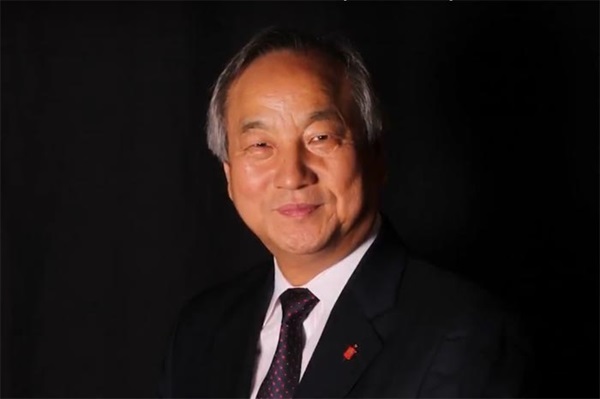Bishop Hee-Soo Jung, of the Wisconsin Episcopal Area, has dedicated his life to the gospel and speaking for peace, reconciliation and unity. Elected bishop in 2004, Jung credits U.S. missionaries and a kind neighbor for his conversion to Christianity.
Your support of the Episcopal Fund apportionment helps pays for bishops' salaries, office and travel expenses, and pension and health-benefit coverage.
Here is his story of conversion:
Methodist missionaries came to Korea in the 1800s and spread the gospel across the country called "The Land of the Morning Calm." Ganghwa Island, which has a view of North Korea, is where Jung was born. Today, the small island has 125 churches in four districts. We traveled to Ganghwa with the bishop in March 2017 and he shared his faith story.
Well I have been growing up in the Buddhist Confucian family, says Bishop Hee-Soo Jung. Then, when I was 16 years old, at that time one of the whole new church movements in Ganghwa expanded. And then one local preacher came to our village which was very protected by Confucian tradition. Grandfather of mine was one of the elders (at the village). A preacher came and continually and persistently asked him to offer the land. I don't know how God persuaded my grandfather. He said, 'Oh, take this rocky hill' which was right next to my home. So this preacher started to build the church. I was a high schooler at the time. One night I came back home, I saw this old preacher is working in the garden, like a field, trying to clean up the rocks and to put the church building. So I just stepped in and say, 'May I help you? Can I carry the rock?' And that was the moment he held me, my hands, and said, 'Yes, thank you. God loves you!' So some way me stepping into that cleaning the ground of the church, and preacher holding my hands and say, 'God loves you,' then I was really caught up by the spirit. It's amazing how God is a mighty God. And through such turbulence of the history of this village, the gospel become a central seed and it's been growing into. And that influenced me and my life.
Six years later I reconciled with the family. Well, I think they didn't accept the Christian faith as their religion, but they understood what I am walking into and what is my commitment. So gradual acceptance of gospel in my life that they embraced me in that way.
I think this island become an entrance and the gate for the modern civilization, such a historical place. But now is right there is the witness of the division between North and South Korea. This is the Demilitarized Zone area. So healing and reconciliation is a church duty here.
They are praying for reunification between the North and South because the war was such a deep wound that so many hurts that war created in this village and this land. The church I hope they will continue to carry on a bigger future as a kind of one nation between North and South, but they become a tool for the gospel for the whole world.
This is a location that God is still whispering the gospel of peace, gospel of light, gospel of reconciliation. I think that become a centerpiece. That's my hope.
Jacob Lee, Editor, Korean Resources, United Methodist Communications
One of seven apportioned giving opportunities of The United Methodist Church, the Episcopal Fund pays for bishops' salaries, office and travel expenses, and pension and health-benefit coverage. Please encourage your leaders and congregations to support the Episcopal Fund apportionment at 100 percent.
Watch video of Bishop Jung.





